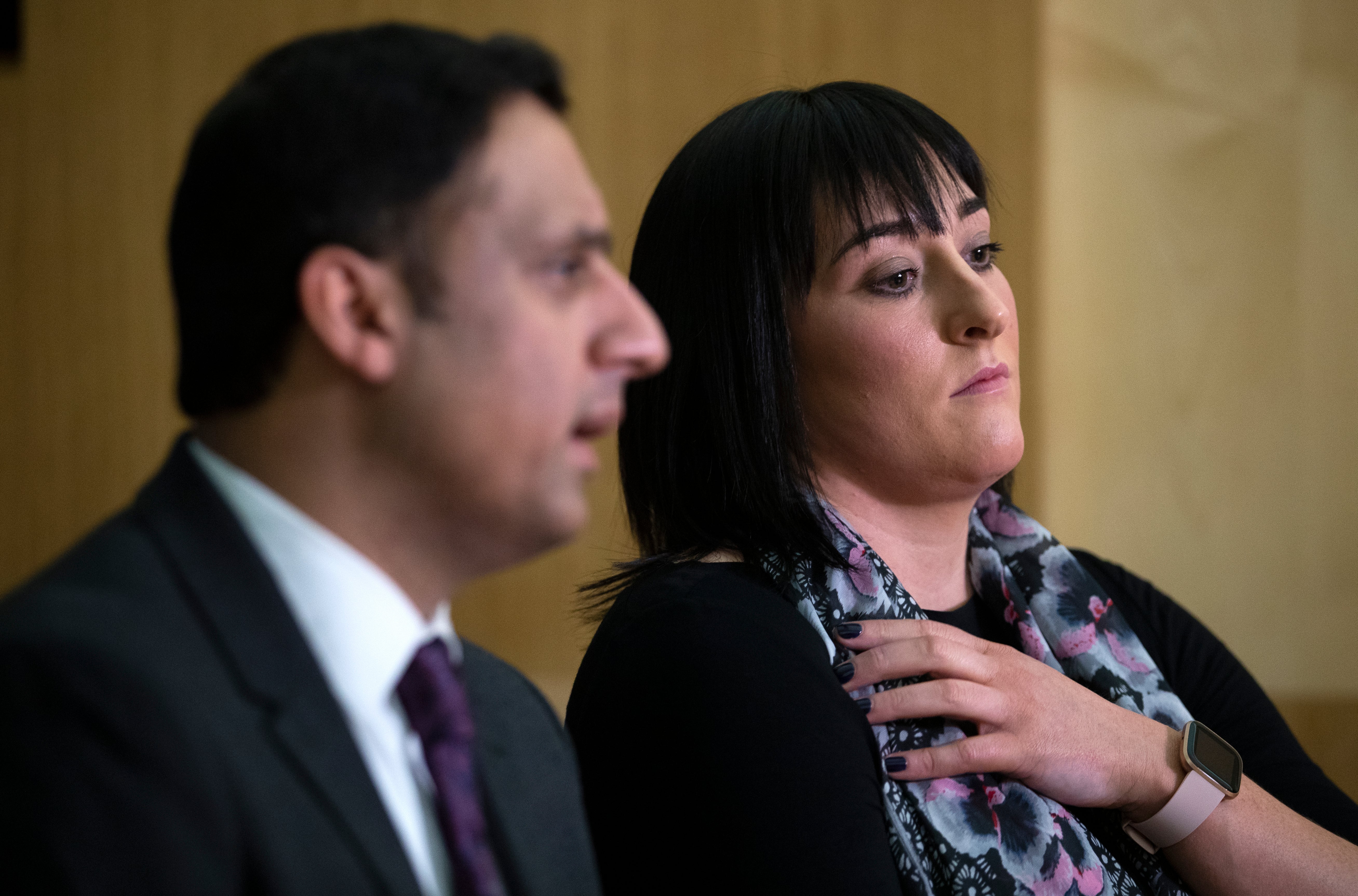Government push back against Labour’s demands for Milly’s Law
Scottish Labour leader Anas Sarwar is calling for more powers for bereaved families.

Your support helps us to tell the story
From reproductive rights to climate change to Big Tech, The Independent is on the ground when the story is developing. Whether it's investigating the financials of Elon Musk's pro-Trump PAC or producing our latest documentary, 'The A Word', which shines a light on the American women fighting for reproductive rights, we know how important it is to parse out the facts from the messaging.
At such a critical moment in US history, we need reporters on the ground. Your donation allows us to keep sending journalists to speak to both sides of the story.
The Independent is trusted by Americans across the entire political spectrum. And unlike many other quality news outlets, we choose not to lock Americans out of our reporting and analysis with paywalls. We believe quality journalism should be available to everyone, paid for by those who can afford it.
Your support makes all the difference.Demands for more powers and rights for bereaved families in the wake of the Glasgow hospital infection scandal have been rebuffed by the Scottish Government.
Scottish Labour leader Anas Sarwar called for changes in the law to give families better access to legal advice and representation, and create an independent public advocate role to act on their behalf.
Arguing for Milly’s Law – named after 10-year-old Milly Main, who had been in remission from leukaemia at the Queen Elizabeth University Hospital (QEUH) but then died from an infection believed to have been caused by the hospital’s water supply in 2017 – Mr Sarwar said families should never again “have to beg for truth to come to light”.
During a debate in the Scottish Parliament in which he urged MSPs to back his call that “families should be at the heart of investigations into public tragedy”, Mr Sarwar said Milly’s death should act as a “watershed moment” to redress the power imbalance between families and institutions.
No longer should public bodies be permitted to close ranks and protect their reputations at the expense of transparency and truth
He said: “There are countless cases in Scotland where the state has failed, where people have been victims or where institutions – rather than deliver justice – have sought to protect themselves and acted against the interests of the public.
“There are many examples: the Queen Elizabeth, the M9 crash, the mesh scandal, just three where victims haven’t just been failed, but who had to fight the system in order to get the truth and to get justice.
“Across Scotland’s NHS, our councils, police services and prisons, thousands of workers do their best every single day.
“But too often when a public service fails, managers and ministers spin a scapegoat and that takes precedence over truth and justice.
“That is why we need to change the law. No longer should public bodies be permitted to close ranks and protect their reputations at the expense of transparency and truth.”
Justice Secretary Humza Yousaf said that there were “merit’s in a number of proposals in the proposed Milly’s Law” but suggested it needed “further consideration and discussion”.
Despite backing from the Scottish Conservatives and Liberal Democrats, the Scottish Labour motion was significantly amended by the government with the backing of SNP and Green MSPs.
Mr Yousaf insisted that the Government had an “open mind” to changing the law to empower families and invited Mr Sarwar to discuss his proposal ahead of any attempt to bring a Member’s Bill to introduce Milly’s Law in Scotland.
While the Scottish Government amendment echoed Scottish Labour’s call for the creation of an “independent patient safety commissioner” to work on behalf of patients and their families, it stopped short of backing calls for the role to be able to “launch independent investigative panels to facilitate transparency at an early stage” as Mr Sarwar’s original motion suggested.
The Scottish Labour call for a ” statutory Charter for Families to be binding on public bodies” was also removed, although Mr Yousaf indicated that adding a duty of candour for Police Scotland could be considered following a consultation later this year.
Responding for the government, Mr Yousaf said: “There are certainly merits in a number of the proposals in Milly’s Law.
“I do think, however, that some of the proposals that he has suggested do need some further consideration and discussion about whether or not some of the outcomes he is seeking are already potentially in train with some of the action that the government is taking forward.”
He added: “Can I also without hesitation apologise to all of those people who have had a poor experience while in the care of the NHS and indeed our other public services.
“We have already established an independent public inquiry led by Lord Brodie QC to see to fully investigate issues highlighted by Millie’s case and of course, the government will cooperate fully in that inquiry.”
Wrapping up the debate, Mr Yousar said: “On occasion, the health boards involved have not approached issues correctly, appropriately, or indeed with the values the all of us hold dear around transparency and parent and family involvement in that respect.”
Scottish Labour’s health spokeswoman, Jackie Bailie, said the Scottish Government’s refusal to back the Labour motion “sends an unhelpful signal about whose side they are on”.
She said: “It looks to me like they err on the side of the institutions, and that would be incredibly disappointing.”
Ms Baillie added: “We need a system that evens up the balance, that is on the side of families not institutions, a system that allows transparency, truth and justice to prevail, a system that doesn’t cover up and hide the facts, but allows them to come to the fore so we learn from mistakes and mistakes in future prevented from happening again.”